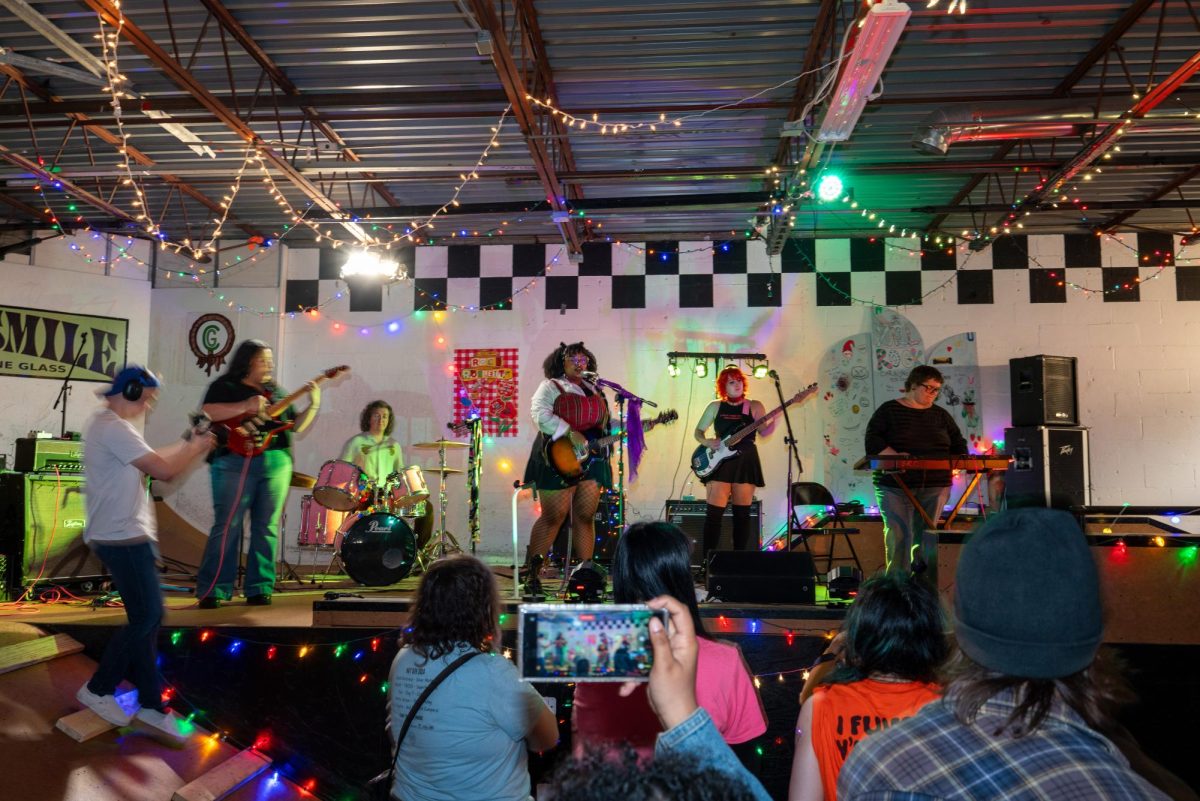SIU law students aid detainees at southern Illinois detention center
September 13, 2019
Three times a semester, SIU law students travel 35 miles south to Ullin and walk through a series of locking metal doors into a freezing room where they offer free legal counsel to detainees at the 240 bed Pulaski County detention center.
Karen Sanchez, a third year law student and volunteer with the program, said she was overwhelmed on her first visit to the center.
“The moment we walked in, I think it was in the fall time, I remember it was cold in there, it was really cold, and they had no jackets,” Sanchez said. “It was just a weird environment.”
Advertisement
Cindy Buys, interim Dean of SIU’s law school, started the Immigration Detention Project in 2005 after being contacted by the National Immigrant Justice Center in Chicago.
Buys said because the facility is in a rural area, the detainees didn’t have much access to legal information or legal services of any kind and many of them are far away from friends and family.
“We started the program to be able to provide some ‘Know Your Rights’ information to the immigration detainees and to explain a little bit about the immigration process that they are going through and to determine whether their legal needs are being met,” Buys said.
Buys said immigration detainees do not have a right to legal counsel in the same way that criminal defendants would.
“They are not provided with counsel by the government if they can’t afford one,” Buys said. “They can hire a private attorney if they can afford to do that, but as you can imagine, many people cannot afford legal counsel and the government does not provide them with one.”
Buys said this lack of access to legal counsel is what makes the program so important.
Students involved with the project complete intake interviews with the detainees, pass out ‘know your rights’ information and packets and send their interviews and findings to the attorneys at NIJC.
Advertisement*
“Sometimes they are able to provide direct representation of immigrants who have legal needs and good meritorious cases to be able to fight their detention and be able to remain in the United States,” Buys said. “Sometimes they’re able to recruit other attorneys who will represent the detainees either for free or for a very low amount of money.”
In cases where the NIJC cannot provide an attorney, Buys said they provide the detainee with more information, so they can better represent themselves in court.
Typically the project takes 10 students per trip to the facility because of restrictions placed on them by ICE.
Sanchez reiterated the difficulty of detainees to find legal counsel and said it’s nice to know that the project is making a difference.
“It’s nice when you can go in there and know that you’re helping people,” Sancez said. “A lot of them can’t speak English, they get these forms they have to sign all this paperwork that they don’t even know what it means, so it’s nice to know that we’re there to help them and that we’re making at least a difference in their life.”
One of the cases that stood out to Buys while she was working on the project was the story of an American citizen who was detained.
“Once, we met a U.S. citizen who had been picked up by ICE who just didn’t have papers on him to prove that he was a U.S. citizen,” Buys said. “ICE didn’t believe him and so he had been in the detention center a week or so, two weeks maybe, when we met him.”
Buys said they immediately called NIJC, and they were able to get the man’s identification and he was released the next day because the group was able to prove he was a citizen.
“We have also met a number of people who are seeking asylum,” Buys said. “Many of them but certainly not all of them, are from Central American countries and several of them have received asylum based on persecution in their home countries, so those are some victories.”
Buys said most of the detainees at the center are adult men, but in recent years she has seen a small number of women held at the center, all of whom are seeking asylum and waiting for their cases to be processed.
Sanchez said one of the cases that stood out to her was that of a sick man who fled his country because of political violence.
Sanchez said it was difficult for him to afford his medical expenses, so he started working for the government by operating the polling machines during election season.
“The political party started getting out of control and he was just like ‘you know what I’m not going to work here anymore this is way too much for me,’ and he told me that the second he abandoned his job that they started following him,” Sanchez said. “They crashed into him one time when he was driving, and he ended up in the ER.”
Sanchez said they told him ‘this is a warning, next time you’re dead’ and continued to threaten him until he had to get back and work with them in order to survive.
The project is sponsored by the SIU law school and through a grant from the Illinois Equal Justice Foundation. According to the foundation’s website, the project received $2,310 from them in 2018.
Buys said while the project is unable to represent detainees in court, she has taken on some pro-bono cases for people seeking asylum over the years with the help of law students.
Buys said sometimes there is no legal basis for a detainee to stay in the U.S.
“If they entered illegally and they have no family here, or ties here, or if they committed a serious crime while here, then they will be deported and there isn’t anything we can do,” Buys said. “Sometimes, that is the right result.”
Buys said sometimes the project is helping them understand and accept what the situation is and to not waste time and money fighting something that is a lost cause.
Sanchez said she would like to see the program inform more people.
“There are a lot of political campaigns going on about immigrants,” Sanchez said. “[…]I feel like people are not really informed about what the procedure is like and what people really have to go through and just the difficulties to get the legal help that they need, and I feel like it would be nice if people would be more informed.”
News Editor Kallie Cox can be reached at kcox@dailyegyptian.com or on Twitter at @KallieECox.
To stay up to date with all your southern Illinois news, follow the Daily Egyptian on Facebook and Twitter.
Advertisement








